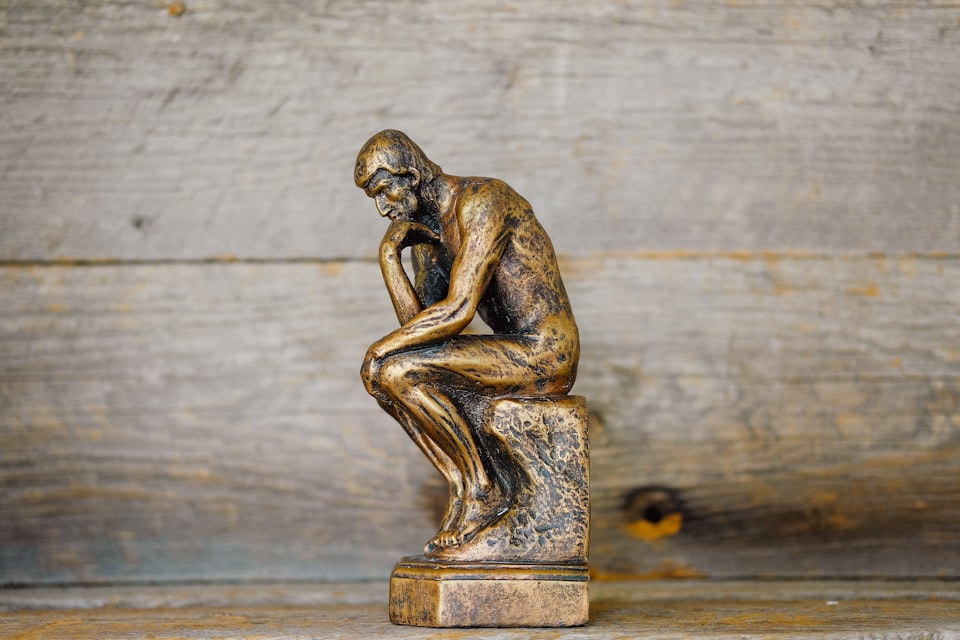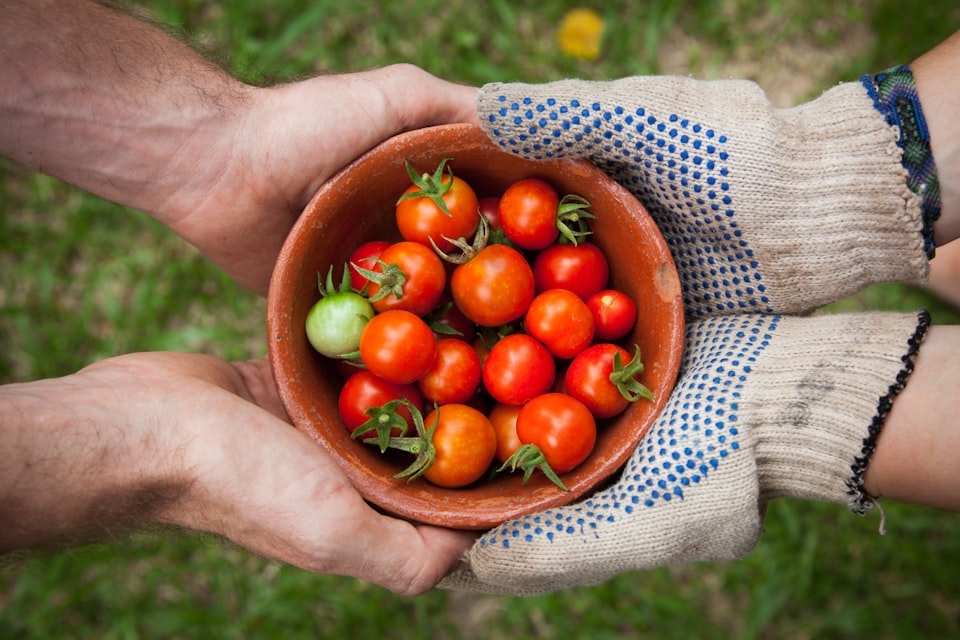Hello. In this week's post, I'd like to list the most important lessons I learned in my 20s. The last decade couldn't have been more exciting and eventful, and it was full of significant life lessons, and I'm thankful for the experience. So, here's an attempt to summarize the things I learned; those that I would say to my younger self if he comes looking for advice.
Moral Compass
- Intentions don't matter; actions do. Irrespective of your intentions, your actions might be wrong. Having good intentions doesn't justify all actions. Intentions don't show outside; actions do. Be watchful of them.
- Resilience is being kind to others even when you are going through shit. Being in a bad situation does not justify bad behavior. The most resilient people are the ones who learn to deal with their bad situations without hurting others.
- There are no good or bad emotions. There are only good and bad reactions to those emotions. This is straight out of stoicism. How you react to an emotion decides the outcome. We are humans, and we are all entitled to all our emotions. Emotions are outside our control, but our reactions are well under our control.
- Question your assumptions and your worldview occasionally. Be open to change and challenge your assumptions and learning. Your identity is not made of rock. Be humble and open to change.
- Don't take yourself too seriously. Humans tend to overvalue their opinions, and nobody is that special. Learn to laugh at yourself, criticize yourself, learn the lesson, and move on.
- Develop self-reliance. Do the things you said you would, even when nobody is watching. YOU are watching yourself; if you don't follow through, you will lose confidence. Self-reliance is a quality of people with high standards.
- Stop and ask yourself, "Am I wrong?" Be introspective. Nobody can be right all the time.
- If you're honest, you don't have to remember what you said. Stop lying for the smallest of things. The habit propagates into bigger things.
- Admit when you're wrong; shut up when you're right. Have the courage to admit when you are wrong. Have the humility to shut up when you are right.
- Self Awareness is the most essential skill you can learn. It is the knowledge of why you do what you do. Developing self-awareness is the basis of growth and progress.
Physical and Mental Health
- Don't be mad at your past. You wouldn't be here if it weren't for your past. Many of us fret about our pasts. But remember that your past shaped you into the person you are today. Try to find peace in that.
- If this isn't nice, what is? When things are going peacefully, when you are enjoying your day, or when you are just happy with small things, stop and say to yourself, "If this isn't nice, what is?". Take a moment to be thankful; you don't need gratitude journals.
- Remember who you are. When going through a hard day or a challenging phase, remember all the tough stages you crossed and all the demons you defeated. Remember who you are. You got this.
- Eat your vegetables.
- There's no need to work hard at the cost of your health. No career is more important than your health. Put on your oxygen mask first, then help others.
- Take time for yourself. The world can wait. It's called setting boundaries.
Dealing with People
- Comparisons are pointless. Unless someone had your exact life or you had their exact life (which is impossible), it's not a fair comparison. The only fair comparison is between your present and past self, which is still okay to fail. We learn by failing.
- The best way to win an argument is not to be in it.
- Know when to shut up. When arguing or fighting with someone, the goal should be to reach a consensus or respect differences in opinions. The goal should not be to defeat the other person — you might win the battle but lose the war.
- Avoid giving unsolicited advice, like this article.
- Don't take any advice blindly. Use others' advice for reference. The wisest people listen to others' advice but make up their own minds before following it. Just because it applied to them doesn't mean it will apply to you. Use your judgment.
- Listening is a superpower. This is a life-long lesson. Sometimes, all the other person needs are for you to listen and not respond with your opinions. Listen to understand, not to respond.
- Put yourself in others' shoes. The greatest favor you can do in a tough situation with another person is to try to see things from their point of view. You might fail, but the mere act of trying will solve most problems.
- Practice grace and restraint. Just because you can react doesn't mean you should.
- Sometimes you suffer by the same standards you set.
- No one can live up to the pedestal we put them on if we always put them on one. Expectations are inevitable more than we care to admit, but nobody can always fulfill our expectations. Try to have low expectations from others.
Personal Development and Identity
- The habit is more important than the content. If you want to cultivate a new habit, do it daily, even if it's just for five minutes. It doesn't matter if the content of the habit is not useful. Consistency is the key.
- Confidence is the ability to deal with failure, not with success. Confidence has got nothing to do with success. A confident person is someone comfortable with failure; who knows that they will fail sooner or later but still knows that they can get out of it.
- Learn to say NO.
- Respect differences of opinion. Respecting differences of opinion without taking offense is a sign of emotional maturity. You don't have to agree with everyone, and neither do they.
- Have as small an ego as possible. Don't be full of yourself, and don't feed your ego. It might be satisfactory at the moment, but it won't serve you in the long run.
- Drop the victim mindset. Take responsibility for your life. Being in an adverse situation does not mean everybody should tend to your needs. Nobody owes you anything.
- It's better to be hated for who you are than to be loved for who you are not.
- Time is your most precious asset. Use it wisely.
- When you find yourself drifting away mentally and emotionally, fall back to your habits. Fall back to your most basic habits. This will give you a sense of grounding, certainty, and comfort.
- Don't show your confidence on purpose. Confidence is personal, and it should radiate from you by itself. The more deliberately you show you are, the less confident you appear. Let it breed and compound inside you. The same goes for knowledge and opinions. Nobody needs to know. It's for yourself.
Learning and Knowledge
- "Nullius In Verba." Take nobody's word for it. Question everything if it doesn't make sense to you. There are no silly questions.
- Keep your head down; you know nothing. What you have learned all your life is nothing compared to what you are yet to learn. Let that sink in.
- Develop a love for reading. I have not seen one successful person who doesn't read for pleasure. The word "pleasure" is the key. They don't read to be successful; they read just for the sake of reading. Quoting Naval, "Read what you love until you love to read."
- Pay attention to the thoughts/things/ideas you're discarding. Sometimes we discard things without second thoughts, but that's where you'll find hidden gems.
- Understand the basics really well. Understanding the basics is far more important than understanding advanced concepts. Preach!
- Have a hunger for learning and correcting yourself. Seek challenges. Listen, talk to, or consume someone's content who believes in the total opposite of your views. It challenges your views and gives you a new perspective. Even otherwise, seek learning experiences. The thrill of learning is unmatched.
- There is always something to learn from everyone. I've carried this one from my mother since childhood. Lessons come from everyone, and you have to look for them.
Personal Finance
- Develop financial intelligence. Know where your money comes from and goes. Have a basic idea about the economy. It's easy to get lost in numbers, but a basic idea of the current economy is enough and helpful.
- Learn how to manage your money. Every month, save before spending, i.e., pay yourself first before paying others. Cut down unnecessary subscriptions. Cut down mercilessly on the things you don't like and spend consciously on the things you like.
- Learn your biases and study taboos. There's a lot of taboo around money. Make an effort to learn about them. Learn about the stock market and other types of investments. Everybody thinks about money differently, so know your biases and be less judgmental about others' views of money.
I learned these lessons from first-hand experience. Sometimes they come easy to you; sometimes, these lessons repeat themselves relentlessly until you learn. These lessons came from my friends, family, and others who knowingly or unknowingly have helped me grow. I'm thankful for all the lessons and look forward to more. What's the most important lesson you learned in your life? Reflect on that. If you have read this much, thank you! Adios.



